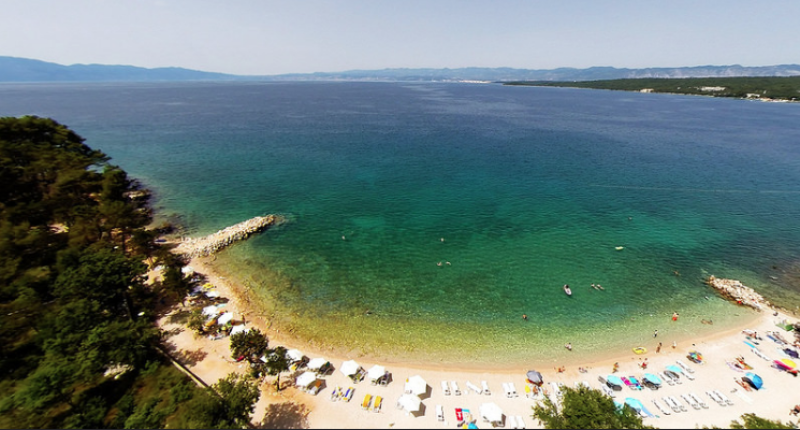Since April low-cost airlines have been sharing the island’s airport runway with vast cargo planes carrying ammunition and unidentified military supplies for the wars in the Middle East, the Balkan Investigative Reporting Network, BIRN, reported Tuesday.
“People on the beach get up from the towels to see what is happening as it looks like planes are about to land on their heads,” Almira Brtan, who rents holiday apartments near the airport, told BIRN.
Some of her guests thought that “a war is starting” when they heard noisy cargo planes, such as the giant Ilyushin-76.
“They jump around so we need to calm them down and explain that those are airplanes,” Brtan said.
The upsurge appears to be the result of the Pentagon’s decision to switch its arms supply-line route to Syria away from Germany after Berlin had become “very sensitive” about the deliveries, BIRN said.
Since the outbreak of war in Syria, weapons produced in Central and Eastern Europe have flooded the conflict zone. The deliveries were partly funded and directed by the Pentagon.
The issue of arming Syrian rebels is controversial as in the chaos of the Syrian war, there is no way to be sure the weapons will not end up in the hands of groups suspected of having commited serious war crimes, experts say.
If this is the case, then the operation may be violating the United Nation’s Arms Trade Treaty of 2014 which prohibits weapons deliveries to anyone who would use them against civillians.
Although the US has signed but not ratified the Treaty, Germany as well as the Balkan countries have done both and are obliged to always check who the weapons and the ammunition they are exporting or helping transport are for.
German law, based on the EU’s common position on arms exports, dictates that licences to transport weapons must be accompanied by end user certificates which state the final destination of the shipment and who will be using the equipment.
But reporters found out that often the end user certificates showed one thing and the weapons ended up elsewhere – for example in Syria.
Evidence collected by BIRN suggests the cargo is likely to have been former Eastern Bloc countries’ arms destined for the Middle East.
After the Balkan Investigative Reporting Network, the Organized Crime and Corruption Reporting Project and Süddeutsche Zeitung published their investigation that revealred the scheme in September 2017, German authorities said they will investigate whether the US really flew weapons for Syrian rebels through the Ramstein air base behind Germany’s back.
But what bothers Germany seems to be fine with Croatia.
This summer reporters identified 14 cargo flights roaring over the tourist island of Krk, probably carrying Eastern Bloc-style weapons and ammunition for the US military.
Ten flights have been operated by Pentagon-commissioned air carriers between Rijeka and the US’s airbase in Qatar, Al Udeid Air Base, with the last taking off on September 25.
In June and July, another four flights to Rijeka were carried out by the Azerbaijan airlines Silk Way, which runs a fleet of giant, Russian-built Ilyushin-76 aircraft.
Leaked documents from the cargo carrier reveal that these aircraft delivered ammunition for Soviet-style weapons from Azerbaijan to the Croatian coast on behalf of the Pentagon.
BIRN asked officials in Zagreb why Croatia was willing to accept Syria-bound weapons that the Germans had refused, despite the fact both capitals followed the same EU-wide regulations, but received no answer.
It is not the first time that Zagreb has proved a useful partner to the US efforts in Syria. Croatia was among the first countries to supply weapons to anti-Assad rebels as part of a CIA-led, Saudi-funded pipeline.
In the winter of 2012, dozens of cargo planes, loaded with Saudi-purchased Yugoslav-era weapons and ammunition, began leaving Zagreb for Jordan. Soon after, the first footage emerged of Croatian weapons in use on Syrian battlefield.





